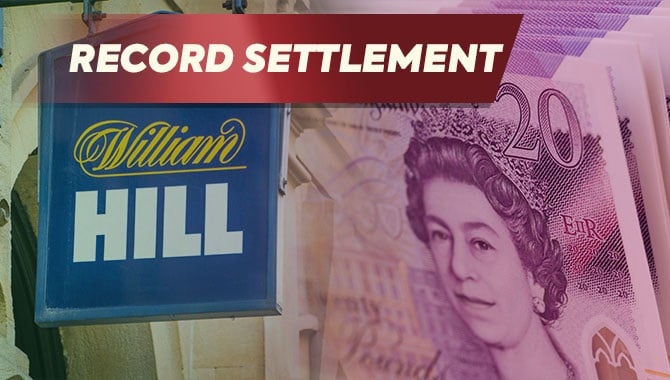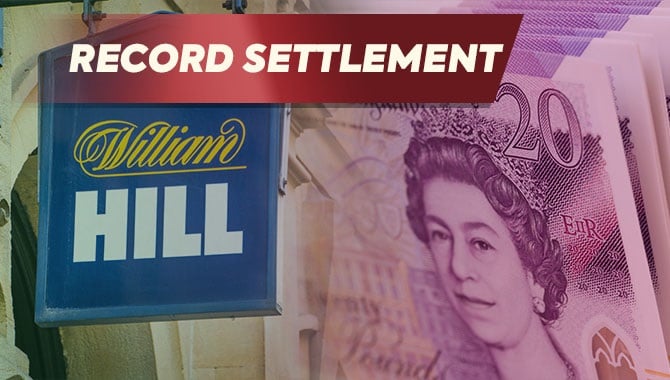
Of course, that ‘record’ is not one to be proud of, with the 888 Holdings-owned William Hill being forced to pay £19.2m ($23.6m) by the regulator for “alarming” and “widespread” social responsibility and anti-money laundering failings.
Entain’s previous regulatory settlement (also not technically a fine) sat at £17m.
William Hill, meanwhile, had been expecting an announcement on how much it would owe, with three of its businesses being found guilty of the failings.
Indeed, WHG (International) Limited will pay £12.5m; Mr Green Limited will depart with £3.7m and William Hill Organisation Limited owes £3m.
Previous ownership
Gambling Insider reached out to parent company 888 for comment, to which it responded: “The settlement relates to the period when William Hill was under the previous ownership and management. After William Hill was acquired, the company quickly addressed the identified issues with the implementation of a rigorous action plan.
“The entire Group shares the GC’s commitment to improve compliance standards across the industry and we will continue to work collaboratively with the regulator and other stakeholders to achieve this.”
Despite the operator’s emphasis on these failings taking place before 888 completed its acquisition of William Hill in 2022, these further regulatory woes will do nothing to stabilise parent company 888’s share price.
It had already seen a sharp decline in recent times following the sudden departure of long-term company executive and CEO Itai Pazner.
At the time of that announcement, 888 was found to have seriously erred with VIP players in the Middle East. Those company-wide problems have now extended to the UK market – albeit with a settlement that was already anticipated.
888’s share value had seen an upturn to around £0.65 last week but is back down to £0.53, having naturally fallen on the morning of the Gambling Commission’s announcement.
Serious consideration given to licence suspension
Now that the finer details have been revealed, if you’ll pardon the pun, there will be an element of closure – and perhaps some small pleasure that the settlement amount was not higher.
For it could have been worse, according to Gambling Commission Chief Executive Andrew Rhodes: “When we launched this investigation, the failings we uncovered were so widespread and alarming, serious consideration was given to licence suspension.
“However, because the operator immediately recognised their failings and worked with us to swiftly implement improvements, we instead opted for the largest enforcement payment in our history.”
Naturally, any licence suspension warnings must be taken with a pinch of salt, as there was a similar message with Entain.
The chances of the Gambling Commission genuinely stripping the licence of such a big operator is a different story, as even regulatory stories in Australia have proven (nine-p fines have seen licences stay in operation).
William Hill’s regulatory breaches themselves stemmed from what has become the norm for Gambling Commission penalties lately.
For example, one new customer was allowed to “spend” £23,000 within 20 minutes of opening an account (and without any responsible gambling checks).
‘Ineffective controls’ were also in place as 331 players were able to bet with Mr Green despite having self-excluded.
Industry still has so much room for improvement
Far more was uncovered and, as ever, the ultimate juxtaposition of the gambling sector is at play here once again.
Tier-one operators must do their utmost to ensure responsible gambling yet face the pressure of shareholders who want maximum quarterly returns on their investment.
When all is said and done, in the engine room, the industry still has some way to go. And, knocking Entain off of its perch, William Hill is now out in front of the pack as the UK’s unwanted record holder.



